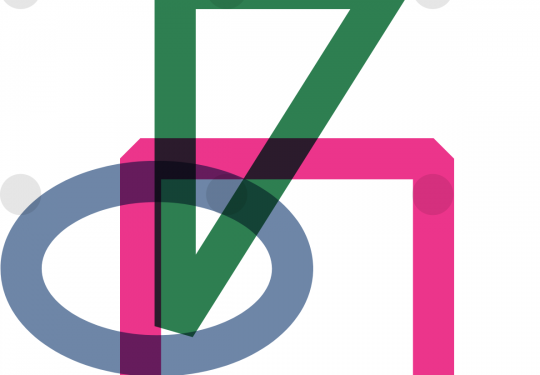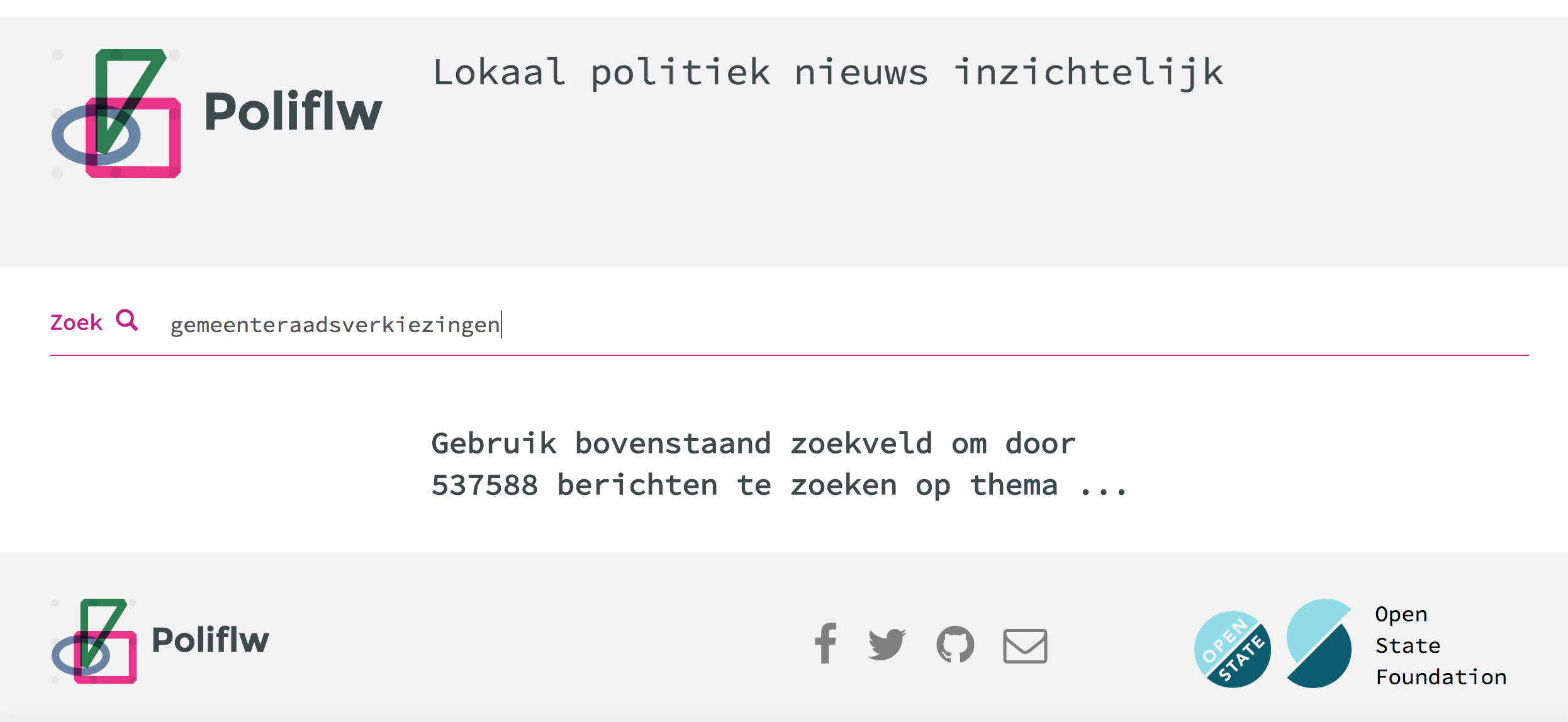As thousands of local politicians have a heavy responsibility because municipalities get more and more tasks, journalism suffers with too little means and time to be able to follow these local politicians. Digital tools can help. That is why Open State Foundation launched the civic tech project PoliFLW.
PoliFLW helps journalists, local advocates and others, save time to follow public remarks of political parties and politicians at a local level. In this way we help journalists to simultaneously follow large groups of politicians, including more than ten thousand municipal council members, with what they said in public.
Prototype
PoliFLW currently consists of a prototype with more than 530,000 articles from more than 3,000 sources, consisting of websites and Facebook pages of local branches of national political parties. An update with recent articles takes place four times a day. With PoliFLW users can not only search in these articles but users can also filter the search results by date, location, politician and political party, subject and sentiment.
PoliFLW uses a named-entity recognition algorithm to make filtering possible for politicians and political parties. This allows users to filter on a politician or political party, even if the name of a party or politician is spelled in different ways. To improve the algorithm, users sometimes get a message in an article asking whether the right person, party or subject has been recognised. The sentiment analysis consists of the degree of polarity and subjectivity.
The civic tech project PoliFLW was developed by Open State Foundation and is still under development. That is why the digital transparency organisation asks users for feedback to help improve it. At present PoliFLW is collecting articles from all local branches of 9 national political parties: VVD, CDA, D66, GroenLinks, SP, PvdA, ChristenUnie, Party for the Animals and the SGP. In the future, the number of political sources will be expanded with other national and local political parties.
The development of PoliFLW’s prototype is funded by Google Digital News Initiative.

